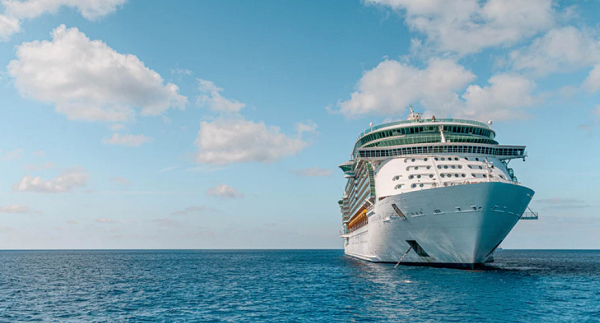By Jim Saunders, The News Service of Florida
TALLAHASSEE — Saying the “injury to Florida’s economy grows by the day,” a U.S. district judge Friday issued a preliminary injunction against federal Centers for Disease Control and Prevention restrictions that have idled cruise ships in the state during the COVID-19 pandemic.
The 124-page ruling by U.S. District Judge Steven Merryday was a major victory for Gov. Ron DeSantis and Attorney General Ashley Moody, who argue that the CDC overstepped its legal authority as it tried to prevent the spread of the virus.
“CDC cites no historical precedent in which the federal government detained a fleet of vessels for more than a year and imposed comprehensive and impossibly detailed ‘technical guidelines’ before again permitting a vessel to sail,” Merryday wrote. “That is, CDC cites no historical precedent for, in effect, closing an entire industry.”
Moody, backed by DeSantis, filed the lawsuit in April, with the case focusing on a “conditional sailing order” that the CDC issued last fall. The conditional sailing order included a phased approach to resuming cruising, with ship operators needing to meet a series of requirements.
But Merryday cited progress in containing COVID-19 since the conditional sailing order was issued and pointed to cruise ships operating in other parts of the world. He wrote that the conditional sailing order relies on “stale data.”
“With the advent of highly effective vaccines, with more than half of adults fully vaccinated, with infection plummeting, with death from COVID-19 asymptotically approaching zero; with the benefit of effective therapeutics for COVID-19; with masks, safe distancing, and sanitation; and with the successful and safe re-opening of business, including airlines, sporting events, and other high capacity venues, COVID-19 no longer threatens the public’s health to the same extent presented at the start of the pandemic or when CDC issued the conditional sailing order,” the Tampa-based judge wrote.
Merryday, however, put a stay on the preliminary injunction until July 18. At that time, he wrote, “the conditional sailing order and the measures promulgated under the conditional sailing order will persist as only a non-binding ‘consideration,’ ‘recommendation’ or ‘guideline,’ the same tools used by CDC when addressing the practices in other similarly situated industries, such as airlines, railroads, hotels, casinos, sports venues, buses, subways and others.”
He gave the CDC until July 2 to propose a “narrower injunction both permitting cruise ships to sail timely and remaining within CDC’s authority as interpreted in this order.” The state would be able to respond to the CDC’s proposal, leading to a hearing.
Also, Merryday ordered the two sides to return to mediation, a process that had reached impasse.
DeSantis and Moody issued statements praising the decision and criticizing federal “overreach.”
“Today’s ruling is a victory for the hard-working Floridians whose livelihoods depend on the cruise industry,” Moody said in her statement. “The federal government does not, nor should it ever, have the authority to single out and lock down an entire industry indefinitely. I am excited to see the cruise industry get sailing again and proud to stand with Gov. Ron DeSantis against illegal federal overreach and draconian lockdown measures.”
The ruling came as cruise-ship operators prepare to try to sail from Florida this summer. The federal restrictions also became tangled with decisions this spring by DeSantis and state lawmakers to ban businesses — including cruise ships — from requiring what are known as vaccine “passports” that would show people have been vaccinated against COVID-19.
The lawsuit contends that the CDC exceeded its legal authority with the restrictions and that the conditional sailing order is “arbitrary and capricious.” Also, it alleges that the CDC has violated the Administrative Procedure Act, which deals with how agencies impose regulations and carry out laws.
Department of Justice lawyers, however, countered by saying the federal government has long had authority to regulate ships to prevent the spread of communicable diseases. The cruise industry shut down early in the pandemic after high-profile outbreaks aboard ships.
But along with raising the legal arguments, DeSantis and Moody have focused heavily on the economic impact of the industry shutdown. That argument was reflected in the ruling by Merryday, who has served as a federal judge since 1992 after being nominated by former President George Bush.
“In sum, Florida establishes a strong likelihood that many or almost all cruise ships will remain unable to sail for the entire summer season,” Merryday wrote. “And each day the cruise industry faces uncertainty about when cruises can resume, Florida not only suffers a concrete economic injury resulting from reduced revenue and increased unemployment spending, but Florida faces an increasingly threatening and imminent prospect that the cruise industry will depart the state. The dislocation of all or most of an entire industry subjects Florida to a protracted or permanent loss of revenue from one of Florida’s largest industries, the benefits of which insinuate themselves into the heart of Florida’s economy.”


Probley get more common sense Judges rulling against Federal over reach as time goes on.
OFF TOPIC: Remember the big to do about homeless folks at that City Walk shelter on Mahan? Mayor Flintstone made some non committal statement that somehow calmed locals who were up in arms over it? Remember*
Well the homeless folk are still there every night.